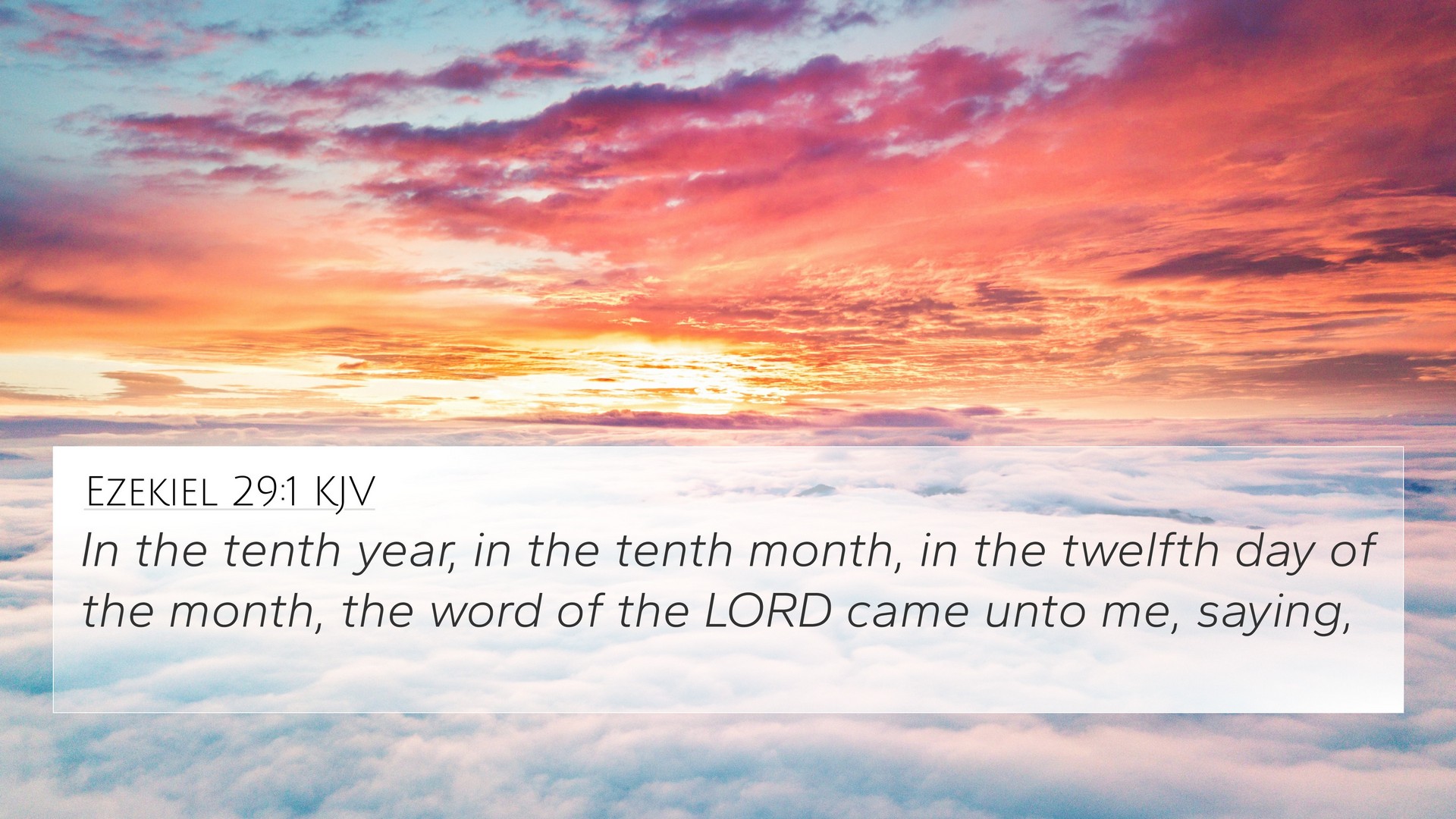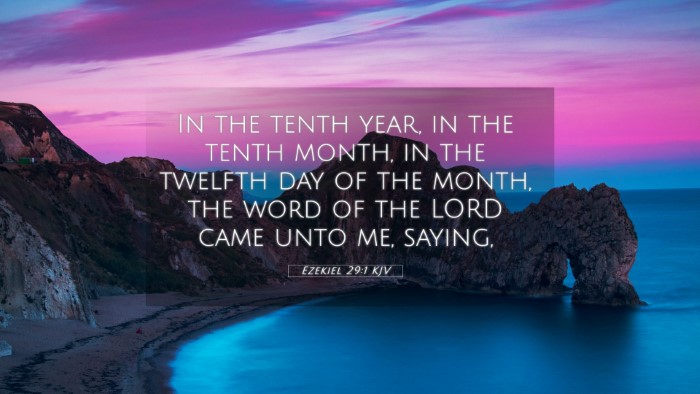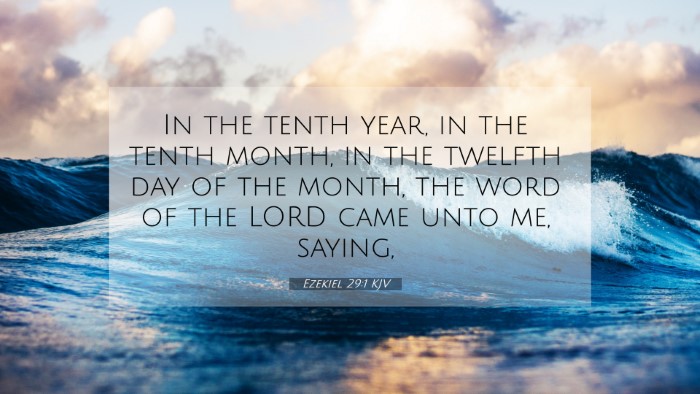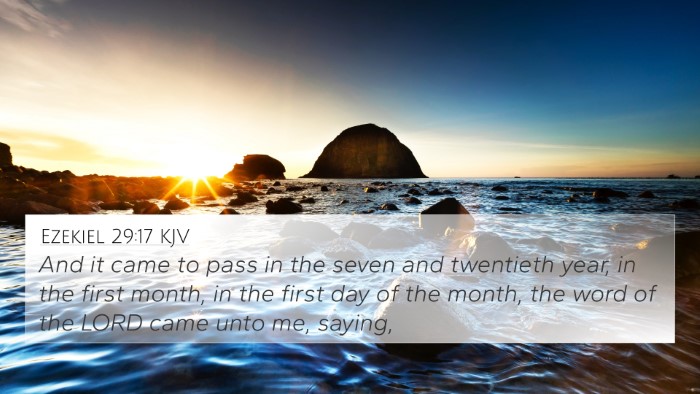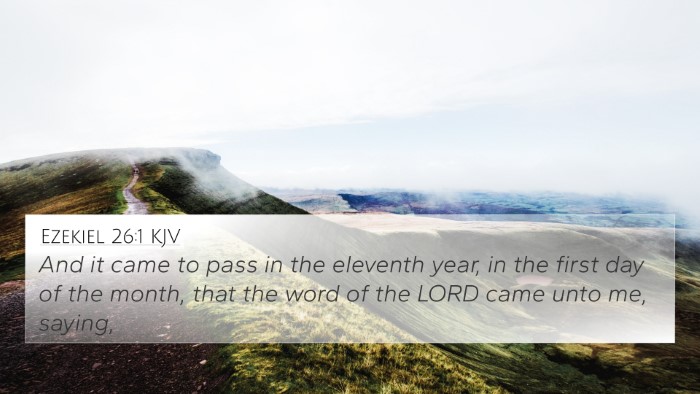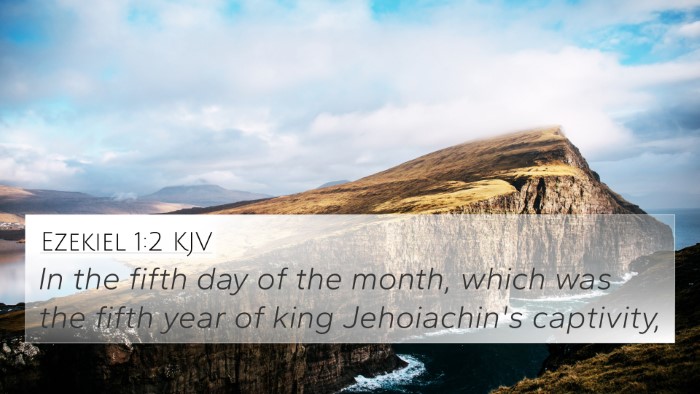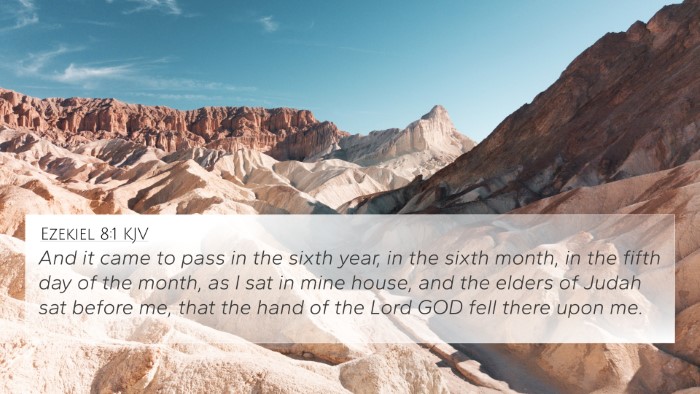Bible Verse Meaning: Ezekiel 29:1
Ezekiel 29:1, which reads, "In the tenth year, in the tenth month, on the twelfth day of the month, the word of the Lord came to me, saying," serves as a profound introduction to a prophetic message concerning Egypt and its leaders. This passage marks a pivotal moment in Ezekiel's ministry, occurring during a significant period of judgment and prophecy.
Contextual Overview
This verse is part of a larger discourse that addresses the fate of Egypt, a prominent nation that often symbolizes oppression and idolatry in the Biblical narrative. The dating of the prophecy not only grounds it in history but also enhances its urgency and significance.
Commentary Insights
-
Matthew Henry:
Henry emphasizes the importance of divine revelation, noting how God speaks specifically at critical times. The mention of the date signals that God’s messages are timely and relevant, calling attention to the seriousness of God’s judgments and the necessity of heeding His words.
-
Albert Barnes:
Barnes highlights the structured method of prophecy in Ezekiel, suggesting that the dating provides a chronological framework that clarifies the unfolding of God’s plans. He argues that this prophetic declaration serves as both a warning to Egypt and a reminder to Israel of God’s sovereignty.
-
Adam Clarke:
Clarke delves into the historical context of Ezekiel's prophecy, elucidating the socio-political backdrop of Egypt's interactions with Israel. He contends that such prophetic declarations are not only about prediction but also serve to encourage moral reflection and accountability for God’s people.
Related Bible Verses
This verse can be understood in connection with several other scriptural texts, which collectively deepen our understanding of its implications:
- Jeremiah 46:2: Provides background on Egypt's impending judgment.
- Isaiah 19: Offers a prophetic vision concerning the fate of Egypt.
- Ezekiel 30:1-2: Continues the themes of judgment and prophecy against Egypt.
- Acts 7:9-10: Reflects on Israel's historical relationship with Egypt and the implications of oppression.
- Revelation 11:8: Alludes to biblical metaphor of Egypt in spiritual contexts.
- Psalm 137:1: Highlights the significance of Babylon and Egypt in Israel’s exile experience.
- 1 Corinthians 10:1-2: Draws parallel connections between Israel's historical exodus and moral lessons.
Thematic Connections
The themes presented in Ezekiel 29:1 resonate with broader biblical themes such as:
- Judgment: God's sovereignty in executing judgments on nations.
- Prophecy: The role of prophetic voices in communicating God's will.
- Historical Accountability: The consequences of nations’ actions in relation to God’s covenant people.
Application and Study Tools
For individuals looking to explore this verse further, using various Bible study tools can aid in cross-referencing and deepening understanding:
- Bible Concordance: Helps in locating other scripture portions that discuss similar themes.
- Bible Cross-Reference Guide: Identifies connections between various verses.
- Bible Reference Resources: Essential for comprehensive research on scriptural themes.
Conclusion
Ezekiel 29:1 serves as not just a mere timestamp but a pivotal moment that reminds readers of God's active involvement in history, His judgments, and the overarching narrative of redemption. By studying this verse and its connections within the Bible, individuals can gain a deeper insight into God's character and the significance of prophecy.
FAQs
-
What verses are related to Ezekiel 29:1?
Key verses include Jeremiah 46:2, Isaiah 19, and Ezekiel 30:1-2, all of which discuss judgments against Egypt.
-
How do prophetic verses connect?
Prophetic verses often articulate God's judgment and plans across various contexts, allowing for thematic analysis and cross-referencing.
-
Why is timing significant in Ezekiel?
The timing emphasizes the immediacy and relevance of God's message, illustrating that His word is timely even in historical contexts.
